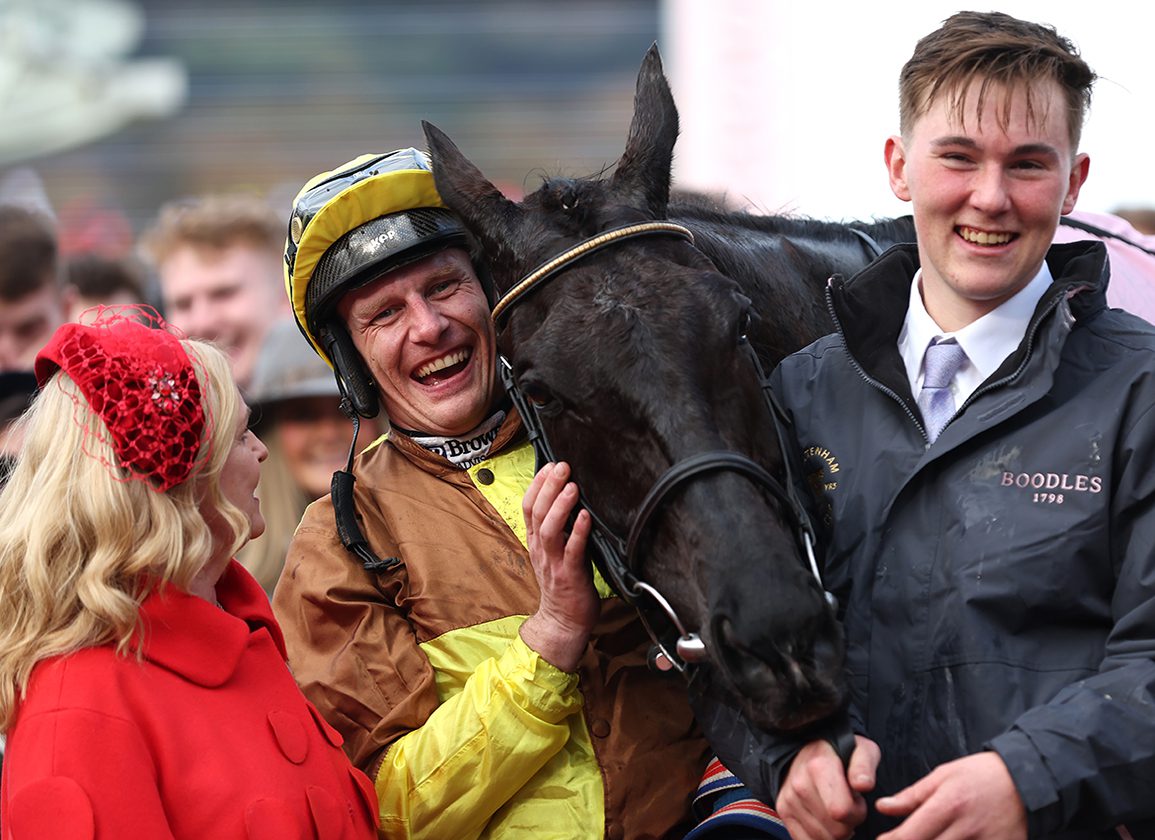By Paul Hayward
When I started covering the Cheltenham Festival in the late 1980s it was still a place of myth and legend: whiskey priests, all-night card schools, hopeful (but not expectant) Irish pilgrimages, farmers with chances of winning a race and wince-inducing whip-use up the hill.
It was a place chiefly for aficionados – the county set and jump racing hardcore, leavened with once-a-year urban tweedies who loved the racing and knew what it meant to watch Dawn Run win both a Champion Hurdle and Gold Cup.
A place, in other words, for disciples, with newsworthy battles between rails bookmakers and big hitters, which the outside world peered at excitedly but fleetingly. The Cheltenham Festival made the front pages because it was edgy, rooted, fragrant, intense and magical. It united the human and animal kingdoms like no other sport. The Grand National was a national ritual, but it didn't shine a light on our culture the way Cheltenham did.
We've come a long way since then. The modern Cheltenham is entertainment industry giant, mass market day out, commercial behemoth, and these days, a place of plunder for Irish yards, principally that of Willie Mullins, who won nine of this year's 27 races, including the two defining events with State Man (Champion Hurdle) and Galopin Des Champs (Gold Cup).
More than ever, Cheltenham is subject to modern economic reality. On the track we see a concentration of power into a few hands and a switch to recruitment, scouting and academy-based success. This, aside from the training skill, is the foundation of Mullins's success – a pre-emptive odds-loading in his favour. An astonishing tally of 103 Festival winners suggests Mullins' networking has caught many of his rivals cold.
Ireland's latest training win over GB yards by 18-9 in the Prestbury Cup has caused alarm at the British Horseracing Authority, whose chief executive Julie Harrington said in a statement the morning after the Gold Cup…
“I have no doubt that the men and women who train horses here in Britain are more than a match for their Irish counterparts. However, they need the ammunition and at present the balance of power and the best horses are going to our colleagues in Ireland, and in particular one yard…..
“However, the Irish domination of the Grade 1 races this week has illustrated that the issue is becoming more pronounced and more damaging for the sport on both sides of the Irish sea.
“Put simply, the rate of decline of Jump racing in Britain at the top end has outstripped the measures that have been put in place to tackle it. We must do more, more quickly, and in a more coordinated and decisive manner if we are going to restore British Jump racing to the standing at which it belongs.”
In other words – it's an emergency. Off the track meanwhile Cheltenham can no longer expect legions of revellers to arrive on autopilot. Like the Ryder Cup in golf, the Festival became drunk on the notion of infinite expansion and untouchable popularity. To the addicted, the last race on Friday triggers a kind of melancholia about the length of the wait for the next Festival to come around. But not even the imperishable charm of that great Cotswold playground can guarantee its survival as an annual must-go event.
First, the experience. Muddy and gridlocked car parks are not to the modern consumer's taste. Nor is a £7.50 pint you have to queue for 20 minutes to get. Nor is a lack of places to sit. Nor, you might argue, are small fields or the Mullins dominance. It's hard to disentangle anxiety about Cheltenham's importance as a shop window from wider worries about the health of National Hunt racing.
Cheltenham is not to blame for much of this. Climate change and £700 hotel room rates are not their fault. Sport's post-Covid spike is over. The racecourse is promising to freeze ticket prices and stop car parks becoming swamps. They insist there is “no complacency.”
Grumbles about the cost of food and drink can be heard across all British sports. And each pays a price for the shambles that our rail network has become. Cost of living pressures are not just Radio 4 news headlines. They force choices on people: what to stick with, what to give up.
In that context the drop in attendance at this year's Festival was relatively modest. Crowds were down 11,000 from 240,603 in 2023 to 229,370 this year. But if the lesson is that Cheltenham will have to sing for its supper like every other major sporting event then the signs of a downturn in public interest may turn out to be cathartic.
There is a deeply optimistic note in what we saw this year. For some, Cheltenham is about the gambling, drinking, eating and cavorting. For my money it was always about the horses. The romance end of the market survives. Fiona Needham winning the Foxhunters' with a £2,400 horse (Sine Nomine) 22 years after she won the race as a jockey was a throwback tale.
And for all the misgivings about Cheltenham becoming the Willie Mullins show, he sent some magnificent horses out for our entertainment: State Man, Ballyburn, Fact To File and above all Galopin Des Champs, whose victory in the hundredth anniversary Gold Cup was a thing of beauty. That's what Cheltenham is, right there.
Not a subscriber? Click here to sign up for the daily PDF or alerts.






